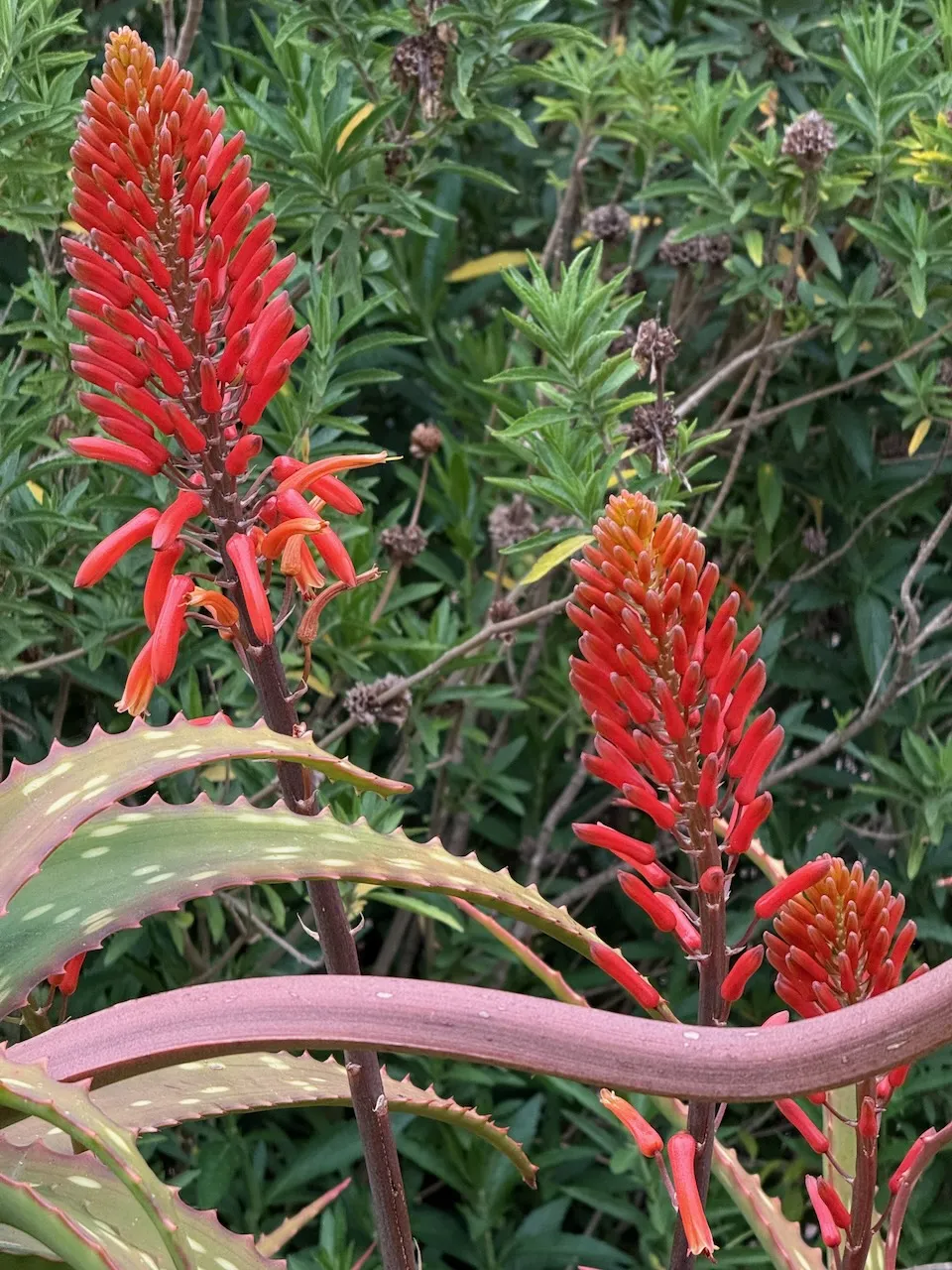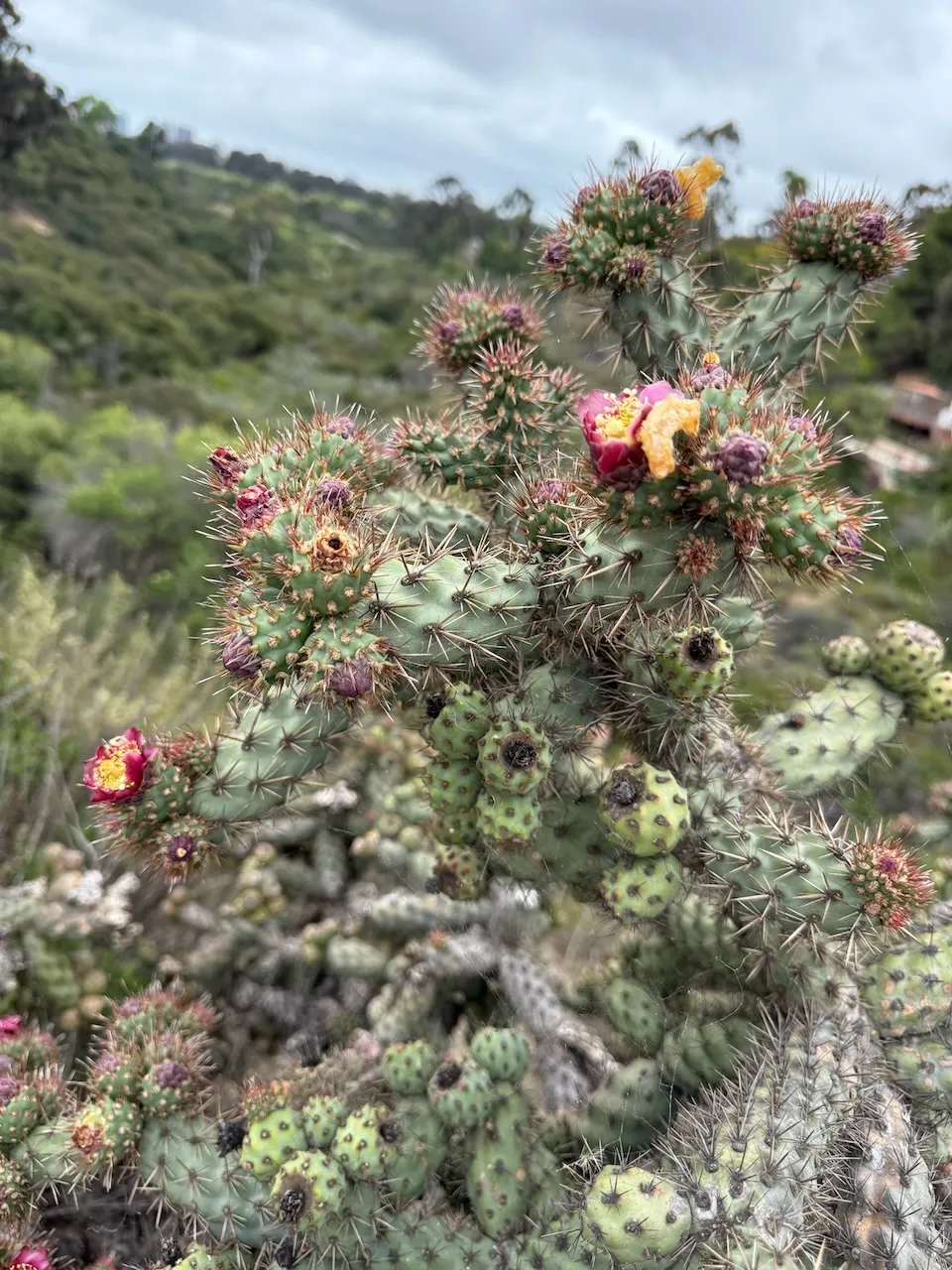John Paul Davis
Newsletter
On Revision
Friend,
“Revision,” a synonym for editing or rewriting, doesn't literally mean "to rewrite" but rather means “to see again.” It gained the meaning associated with rewriting late in its career, but I think I prefer the deeper, original meaning. I’ve been thinking about revision as I revise a poem that, unlike most of the poems I’ve written, has a deadline. As with pretty much all of the poems I’ve written that did have deadlines, this one’s deadline is a performance date. The poem must be read out loud to other human beings on a certain day, at a certain time, so I cannot follow my normal revision process, which is to leave it alone until such time as I either re-encounter the poem in my saved files, sometimes years later, or I am struck by how to revise it and I hunt it down and open up the file and get to work.
I am, to quote the musician Brian Eno, more of a gardener than an architect. I know writers who plan out what they’re going to write, who know in advance where this is going, and the writing itself is just labor in between here and there. I am not such a writer. I almost never know where I am going, and the writing is how I discover, what I mean, what I intend to say, which is to say: for me, writing is a kind of thinking.
I did not, for example, jot down notes or an outline for this newsletter entry. I am visiting my sister and my other sister and her family, so I waited until conversation was at a lull and people had separated for the afternoon to do chores, run errands or take a break of some kind, and then I found a quiet spot, put on some music, tabbed open a car of seltzer and asked myself what do I think today?
With poems, there is usually a flurry of activity in and around the first draft. Words come to me faster than my fingers can accommodate. Ideas compete for attention like a litter of puppies. A poem starts when I asked myself some version of what happens if I try this, where this is either mechanical like a particular form, a way of making assonance, a pattern of repetition or a certain syntax and diction, or it is an approach to the poem’s content, a certain title, a particular rhetoric, a theme, an insistence of having certain images. Poems evolve when I write them; they unfold, they bloom, they germinate, they meander and cut a path through the land as they do.
There is always organic, recursive revision as I write. As a poem becomes what it becomes, I will delete lines, move words around, exchange one word for another, relocate stanzas, rephrase sentences, cut atrophying sections. Much of this feels like the writing itself, and feels instinctive. I sometimes wonder if instinct isn’t just what one has after decades of practice, one’s intelligence and experience operating below one’s conscious awareness, like how a seasoned guitar player’s fingers move into different chord positions without the musician explicitly thinking “this is a C; put one finger on the first fret of the string second from the bottom, another on the second fret of the fourth string from bottom” and so on; their fingers just leap into the shape at the right spot.
(My fingers do not do this, at least not with C, which remains my nemesis in terms of getting good at fingering guitar chords. The piano has the right idea; three easy keys, all a few doors down from each other, but no awkward positions involved.)
Eventually I reach a certain point at which I am done writing, at least for now. Then I put the poem away, or I read it out loud to listeners I trust, people who won’t give me terrible advice (most writing advice is terrible), or I take it to a poetry reading attended by such listeners (I’m looking at you, SupaDupaFresh!) because reading a poem out loud is a way of having a bodily experience of the poem. For many years I attended and competed in poetry slams, and I found the slam a useful tool in this regard; putting a poem in the slam was a reliable way for me to feel, physically, if a poem was done or not. If it wasn’t, I’d experience it as a kind of tension or anxiety when I read.
A poem might wait weeks or months or years for me to reopen it, read it again, and know, fairly quickly, if it is done, or if it needs more rewriting. How I love the experience of coming across a poem I’ve written years prior, opening it up, reading it, and thinking “I wrote this? This is a banger!” But I love equally, opening a poem, reading it and immediately seeing what I could not all those weeks or months or years ago - what is missing, what there is too much of, what needs to be moved, how the music needs to be adjusted.
Both of those are revision - seeing again. The first scenario (rare, to be sure), of reading a poem and knowing it’s ready to submit to magazines, or go in a book, no editing required is just as much a seeing again as the second, when edits are called for. The poem has not changed, but I have, and I can now see it the way it needs to be seen.
When edits are called for, they may be small (the dismount is not right and new ending is called for) or they may be big (this poem should be in the second person, and that changes everything, maybe even the poem’s entire rhetoric). What I thought was this fun, silly poem about my beard is really about my difficult relationship with my father. What I thought was a poem about my favorite tree that was cut down is really about my contradictory beliefs about prayer.
Poems themselves, if they are working well, are revisions, for that is the work poems do: they prompt us to see again what we have already seen. A poem that does not perform this work is probably either an essay in disguise or it is not yet in its final form. I imagine the architect sort of writers can bake this into their poems, the invitation to revision of how the reader see the world, but being the gardener variety, the only way I know if a poem is doing that work is to experience it, which is to say my own poems have to surprise me. A poem is done, for me, when I have experienced that surprise.
This week the poem I am revising cannot sabbath and ferment for years or months, because on a day in the not-too-distant future, I will need to read the poem out loud, and prior to that, have a final draft ready for the curators of the event to read, and so I am attempting to jump-start the revision, the seeing again, and therefore thinking about revision, and also my entire writing process, and also also how incredibly weird writing is, and how doubly weird writing poetry is, and yet how everyone who knows how to write has written at least one poem in their lives, which cannot be said for all the arts. Not everyone has written an opera, for instance, or thrown a pot, or choreographed a ballet.
I am one of the very few who never stopped liking writing poems, weird as it may be, and I like reading them almost as much, and also this great joy: rereading a poem, which is the third kind of revision. How marvelous it is to come back to a previously-encountered poem and see it again, and because you have changed, you see it differently, you see it anew.
This morning I walked, for the second time, along a path I’d walked yesterday morning. Today was cloudier, and I was alone instead of walking with someone, and I was altogether bouncier and cheerier than yesterday, and this meant I saw many things today I did not see yesterday: the way the wild mustard blossoms conspired as a group to yellow a hillside, the boldness of the wild rabbits grazing on clover, the insistence with which a single bloom of blue skullcap had elbowed its way up through a crack in a rock.
Podcast
This week's episode is my poem "Zipper," from my second book, Climbing A Burning Rope.
Earlier this week Mahira and I had brunch with some of her friends, a couple, who are now my friends, though the associative property of friends. As often happens when one spouse or partner is introduced to the other's friends, estpecially another couple, couple origin stories are shared, and the story of Mahira and is quite intertwined with poetry, as you might expect from the meeting and joining together of two writers. Once it was learned that I wrote many a poem for and about Mahira, and the us Mahira and were becoming, one of the couple was keen to hear some of those poems read, but, of course, I am usually reluctant to turn a great conversation into a poetry show, so no poems were read.
As recompense, I decided this week's episode should be one of those poems. This one, which ended up in my second book, began as a draft well before my first book was published. It began as what I knew was a dynamite image (it is now the poem's opening image) but I did not really know where it wanted to go from there. Years later, when working on the second book I re-encountered, and re-saw the poem and saw, for the first time, what it could be, and understood, in that way that sometimes happens such that it felt like I'd missed something uncredibly obvious - this poem is about mising Mahira, dummy, how could you not see that, it's right there in front of you. Even then, knowing what it should be about, I did not know how to end it until even later, when I made a playlist for Mahira and reflected on how making a playlist (and here I mean, picking the songs and the order oneself without the aid of algorithms or robots) is a way of giving someone else a piece of oneself, and then I had to scramble real quick and find the poem and clatter out the ending before the inspiration left me to go bother somebody else.
Subscribe: RSS | Apple Podcasts | Spotify
Micro-Reviews
This week I listened to:
Bill Frisell's 2020 album, Valentine.
Wilco’s 2004 album A Ghost Is Born.
Hem’s 2002 album Rabbit Songs.
Tony Toni Toné’s 1996 album House of Music.
You can follow the Micro Reviews on BlueSky or via RSS.
Photography



